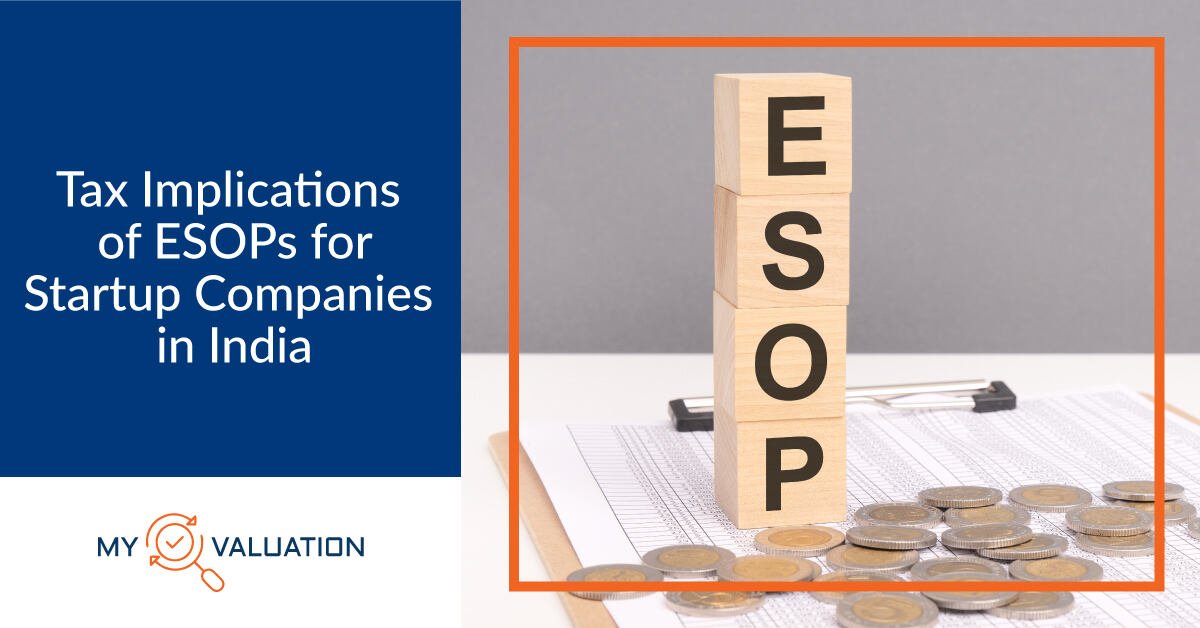
Private Placement: Meaning, Procedure, Advantages and Disadvantages
March 13, 2024
5 Ways to Improve Financial Planning through Outsourced CFO Services
April 19, 2024Tax Implications of ESOPs for Startup Companies in India
You’ve likely heard about the term “ESOPs” being thrown around in the startup world, but what exactly are they, and why are they so important?
ESOPs, or Employee Stock Ownership Plans, are a way for companies to offer their employees ownership stakes in the form of shares or stock options.
For startups, ESOPs can be a game-changer when it comes to attracting and retaining top talent – after all, who doesn’t want a piece of the pie?
But with these lucrative opportunities come a set of tax implications that you need to be aware of.
In this blog post, we’ll explore ESOP taxation for startups in India, covering everything from how they work to the tax implications for both employees and companies.
What is ESOP (Employee Stock Ownership Plan)?
An ESOP is essentially a plan that allows employees to acquire shares or stock options in the company they work for, typically at a discounted price.
There are different types of ESOPs, including stock options, stock appreciation rights, and good old-fashioned shares.
For startups, ESOPs can be a game-changer in attracting and retaining top talent. Plus, ESOPs can help align the interests of employees with those of the company, creating a sense of ownership and motivation.
But not just anyone can participate in an ESOP – there are usually eligibility criteria based on factors like tenure, performance, and role within the company.
Tax Implications for Employees
Now, let’s get to the juicy part: taxes. If you’re an employee participating in an ESOP, there are a few key tax implications you need to be aware of.
First up, there’s the taxability of ESOP under the Income Tax Act at the time of exercise of ESOPs.
When you exercise your stock options or acquire shares, the difference between the fair market value of the shares and the price you paid (also known as the exercise price) is considered a perquisite, and you’ll have to pay perquisite tax on ESOP on that amount.
Additionally, your employer will need to deduct tax at source (TDS) on this perquisite value.
Furthermore, when you eventually decide to sell those ESOP shares, you’ll also need to pay capital gains tax. If you sell the shares within a year of acquiring them, it’ll be considered a short-term capital gain, and you’ll be taxed at your applicable income tax slab rate.
However, if you hold on to those shares for more than a year, you’ll be eligible for long-term capital gains tax, which is generally lower.
Fortunately, there are some tax planning strategies you can employ to minimize your tax burden.
Tax Implications for Startups
While employees have their fair share of tax considerations, startups offering ESOPs aren’t off the hook either.
Let’s explore the tax implications for companies.
First up, there’s the question of the deductibility of ESOP expenses. Generally, the cost of issuing ESOPs to employees is considered a deductible expense for the company, but there are certain conditions that need to be met, such as proper accounting treatment and documentation.
Next, startups have withholding tax obligations when it comes to ESOPs.
This means they need to deduct tax at source (TDS) on the perquisite value when employees exercise their options, as well as on any gains made when they sell their ESOP shares.
Compliance is also a big deal when it comes to ESOPs. Startups need to ensure they have proper ESOP plan documentation in place, file ESOP returns, and comply with various reporting requirements.
But just like employees, startups can also employ some tax planning strategies to optimize their ESOP expenses and minimize their tax burden.
This could involve structuring ESOP plans in a tax-efficient manner or carefully timing the issuance and vesting of ESOPs.
Recent Developments and Proposed Changes
The ESOP taxation is constantly evolving, and it’s important to stay up-to-date with the latest developments and proposed changes.
Recently, there have been amendments to the ESOP taxation rules, which have impacted both employees and startups.
For instance, the government has introduced a new tax regime for ESOPs, which aims to make the taxation process more streamlined and transparent.
Additionally, there have been proposals in the latest Union Budget to further tweak the taxation rules around ESOPs.
These changes have sparked a range of reactions from industry experts and stakeholders, with some praising the move towards simplification, while others raise concerns about the potential impact on startups for talent acquisition and retention.
Conclusion
By now, you should have a solid understanding of how ESOPs work, the various tax considerations for both employees and companies and the recent developments in this ever-changing landscape.
But here’s the thing: navigating the world of ESOP taxation can be a complex and daunting task, especially for startups juggling a million other priorities.
That’s why it’s crucial to seek professional advice from tax experts and advisors like My Valuation who can guide you through the intricacies of ESOP taxability and help you implement effective tax planning strategies.
We are a leading firm specializing in ESOP valuations, taxation, and advisory services.
Our team of experienced professionals has a deep understanding of the regulatory landscape and industry best practices, ensuring that our clients receive tailored solutions to optimize their ESOP programs while remaining compliant with the latest tax regulations.
Whether you’re a startup exploring the possibility of implementing an ESOP or an established company seeking to streamline your existing plan, we’re here to help.
Remember, proper tax planning and compliance are not just about minimizing your tax obligations; they also play a crucial role in ensuring that your ESOP program remains an effective tool for attracting and retaining the best talent in the industry.
This, in turn, can contribute to the long-term success and growth of your startup.



